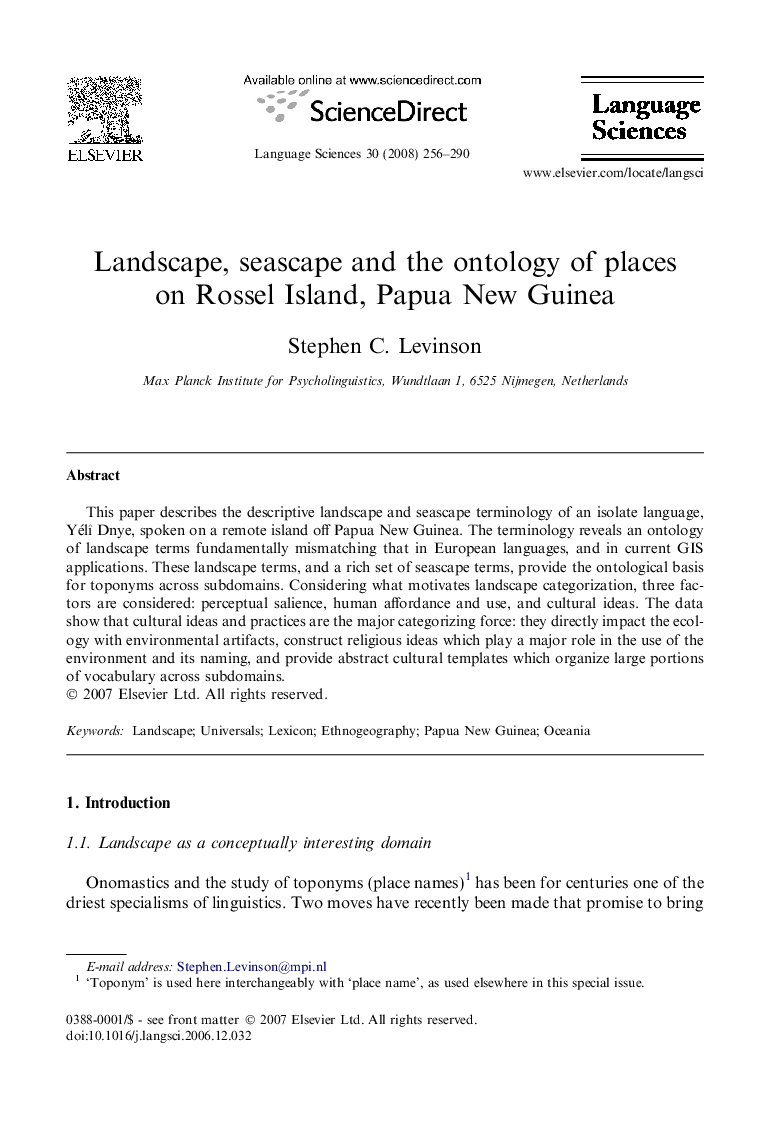| Article ID | Journal | Published Year | Pages | File Type |
|---|---|---|---|---|
| 1103650 | Language Sciences | 2008 | 35 Pages |
This paper describes the descriptive landscape and seascape terminology of an isolate language, Yélî Dnye, spoken on a remote island off Papua New Guinea. The terminology reveals an ontology of landscape terms fundamentally mismatching that in European languages, and in current GIS applications. These landscape terms, and a rich set of seascape terms, provide the ontological basis for toponyms across subdomains. Considering what motivates landscape categorization, three factors are considered: perceptual salience, human affordance and use, and cultural ideas. The data show that cultural ideas and practices are the major categorizing force: they directly impact the ecology with environmental artifacts, construct religious ideas which play a major role in the use of the environment and its naming, and provide abstract cultural templates which organize large portions of vocabulary across subdomains.
